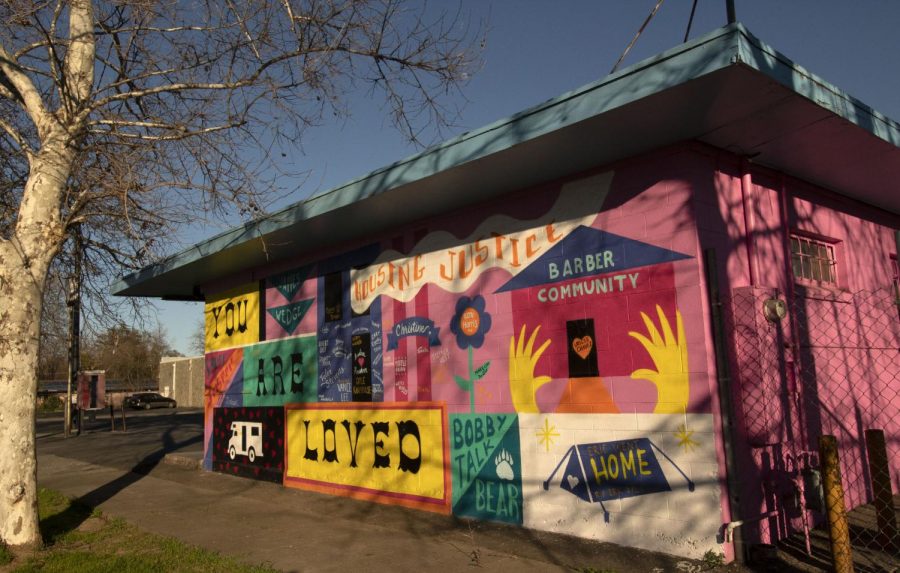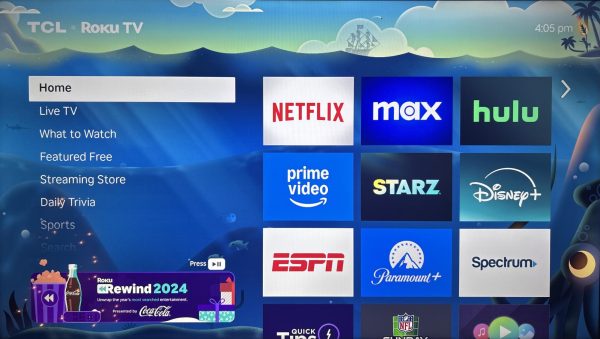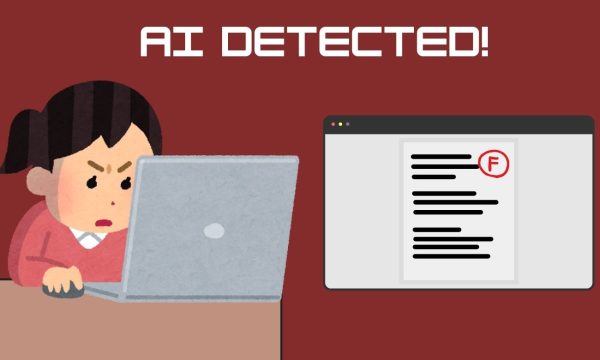Environmental recovery means helping the underprivileged
This mural was created by muralist Siana Sonoquie on the side of the 1078 Gallery on Park Avenue. Photo by Erin Holve.
Recent evictions of Chico’s homeless encampments are facing heavy criticism. While some argue that evictions are a good solution, others like myself would prefer a care-based system.
Self-care, along with medical and social care, are only small pieces in this puzzle of humanity’s recovery. Some in society seem to ignore or bypass what I hold to be perhaps the most fundamental piece — the environment.
Gov. Gavin Newsom’s plan to phase out gas-fueled cars by 2035 is a great idea as long as it includes everybody. We need improved public transportation, particularly for more rural communities with fewer opportunities than those in more developed areas.
Our dependence on a healthy, thriving environment is no mystery. Some, however, might overlook their own environmental privilege. Although campsite impact on our waterways is an issue, we must not handle that problem as cruelly as City Council has done lately.
The evictions don’t appear to have been a primarily environmental concern. The decisions seem apathetically or insincerely planned. I’m not surprised by the level of political bias that endangers impoverished communities.

Environmental privilege bypasses disenfranchised populations, including the Black and Native American communities. Systemic oppression is exacerbated by a fast-changing climate that forms the backdrop of unethical political decisions.
Some anti-homeless attitudes in Chico are disguised as a superficial concern for quality of life. Our environment is so beautiful that some would rather see our resources wasted on making life harder for people who could potentially ruin a good tourist photo. This worry with aesthetic flaws is becoming harmfully smug.
Although Chico’s unsheltered don’t face more serious threats like toxic pollution, I see a bigger environmental threat to them than the average Chicoan. The environment poses a different kind of problem for unsheltered locals.
In their 2019-2022 Community Health Assessment, County Public Health analyzed health inequity for the homeless population. Infected wounds and exposure to harsh climate are some common environmental health risks.
A 2018 report found that homeless deaths substantially increased over a 10-year period. Of 14 cities reviewed, five were from California. Their situations could have only been worsened by living unsheltered. Let’s not forget that the Winter Shelter shut down last year.
Cold, wet climate can complicate pre-existing conditions and illnesses. If the fear’s not the cold, then it’s wildfires. Not only a threat to homeless people, catastrophes can also cause homelessness.
Caitlin Dalby, recently elected Chico Unified District board member, is also the new general manager for Butte Environmental Council. Dalby stated her goal to protect ground and surface water and acknowledged BEC’s role in homelessness and other socioeconomic issues.

Unfortunately, BEC still has a webpage advising locals to report homeless encampments to Chico Police. Regardless of the need for healthy waterways, this suggestion is unfair for those who are underprivileged. 24/7-access to public restrooms is one way to help this problem.
When we evacuate people who have nowhere to go, we perpetuate their obstacles. Isolation from resources can be dangerous for quality of life. Such resources include healthy food, emergency treatment, medications, clean water and social services.
While I agree we need to protect our environment, I don’t think that can happen without equally protecting all of its inhabitants. I disagree that most homeless people would prefer to sleep cold nights next to a cold creek, or bathe in it for that matter. Homeless campers are not camping the same way as recreational hikers. They’re making sacrifices for a life that’s harder than anything a house will ever bill you.
City policies and environmental plans must use inclusionary language so as to not ignore or worsen the problems of marginalized groups. They should also mean it. When we talk about neighborhoods, homeless people are still our neighbors.
We can’t keep sweeping the problem under the rug to hide it from public eyes. Our homeless population represents our own failure to solve economic problems. If signals of failure keep concentrating into a dense, forgotten pocket, then a tumor will emerge. Eventually, it will spread.
I find the common denominator of socioeconomic and environmental problems to only be greed or ignorance. If we’re not willing to admit either factor is responsible for our neglect, then we can only admit our own apathy toward defeat.
Shae Pastrana can be reached at [email protected] and @PastranaShae on Twitter.








